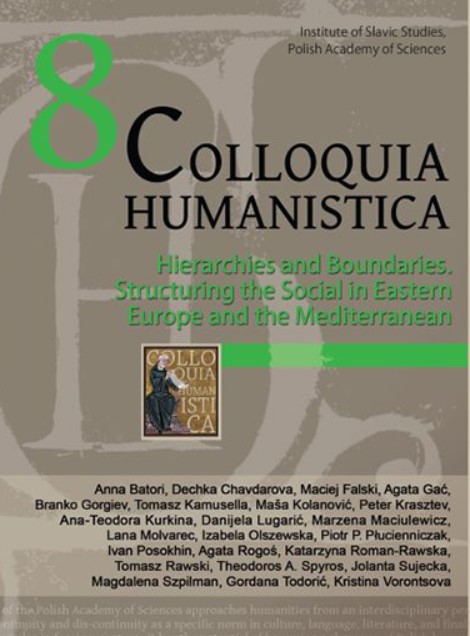The Vow to Testify: On the Gulag and Intertextual Economy of Literature (Karlo Štajner, Varlam Shalamov, Danilo Kiš)
The Vow to Testify: On the Gulag and Intertextual Economy of Literature (Karlo Štajner, Varlam Shalamov, Danilo Kiš)
Author(s): Danijela Lugarić VukasSubject(s): Political history, Comparative Study of Literature, Croatian Literature, Russian Literature, Serbian Literature, Interwar Period (1920 - 1939), Theory of Literature, Politics of History/Memory
Published by: Instytut Slawistyki Polskiej Akademii Nauk
Keywords: economy; GULAG; witness; testimony; Štajner; Shalamov; Kiš; (post)memory;
Summary/Abstract: Departing from the “aesthetics of unrepresentability” of testimonial literature and implied “belatedness and collapse of witnessing” (G. Agamben, Sh. Felman, D. Laub), the paper engages in the economic foundations of literature through analysis of symbolic meanings of economic metaphors in Štajner’s memoirs Seven Thousand Days in Siberia and Shalamov’s story Lend-Lease, and through illuminating different aspects of intertextual and intercultural exchange between Štajner’s memoirs and Kiš’s “pseudo-factual” fiction A Tomb for Boris Davidovich. What is testimony and can it be – considering the nature of the one who testifies and the language in which he testifies – “valid,” “valuable,” “useful,” to use the language of economy? Can we think about Kiš’s literary appropriation of Štajner’s memoirs as an outlet for reclaiming the voice not only of Štajner, but also of Kiš’s father, who perished in Auschwitz? What are the uses of economic hypothesis in literary studies?
Journal: Colloquia Humanistica
- Issue Year: 2019
- Issue No: 8
- Page Range: 341-360
- Page Count: 20
- Language: English

